Why a Rotting Tooth Needs to Be Removed

Tooth decay is one of the most common dental problems, but when decay becomes severe, it can pose a serious risk to both your oral health and overall well-being. At Dr. Wayne Suway’s dental practice in Marietta, we understand that many patients hope to save every natural tooth—but sometimes, a tooth with advanced decay simply cannot be restored.
If you’ve been told you have a “rotting tooth” or a tooth with decay so severe that it’s beyond repair, tooth extraction may be the healthiest and safest option. Here’s why.
What Is a Rotting Tooth?
A “rotting tooth” refers to a tooth that has been extensively damaged by severe tooth decay (dental caries). Tooth decay occurs when harmful bacteria in the mouth feed on sugars and starches, producing acids that erode tooth enamel. If untreated, decay can spread to the dentin (inner layer of the tooth) and eventually reach the pulp, where the tooth’s nerves and blood vessels reside.
In the early stages, decay can often be treated with a filling, crown, or even root canal therapy. However, when a tooth is extensively decayed, crumbling, infected, or structurally unsalvageable, extraction is typically recommended.
How to Know When a Tooth Cannot Be Saved
At Dr. Suway’s office, we always prioritize saving natural teeth whenever possible. Root canal therapy, dental crowns, and other restorative treatments can successfully preserve many decayed teeth. But in cases of advanced decay, extraction may be necessary if:
- The decay has destroyed most of the tooth structure.
- There is a severe infection (abscess) that cannot be resolved with a root canal.
- The tooth is cracked or broken below the gumline.
- There is significant bone loss around the tooth.
- The decay extends to the roots, making it impossible to restore function.
- The tooth causes pain, swelling, or risk to surrounding teeth.
If left untreated, a rotting tooth can lead to serious health complications, including systemic infection and bone deterioration.
The Dangers of Leaving a Rotten Tooth in Place
Many patients hesitate to have a decayed tooth removed, especially if it’s not causing constant pain. However, delaying treatment can create much bigger problems. Here’s why a rotting tooth should never be ignored:
1. Risk of Infection
Severe decay exposes the pulp and roots of the tooth, allowing bacteria to enter the bloodstream. This can lead to a dental abscess, facial swelling, and in rare cases, a serious condition called sepsis.
2. Damage to Surrounding Teeth and Bone
Bacteria from a rotting tooth can spread to adjacent teeth, increasing your risk of additional tooth decay and gum disease. The infection can also lead to bone loss in the jaw, compromising the stability of neighboring teeth.
3. Chronic Pain and Discomfort
As decay progresses, the tooth may become extremely sensitive or painful. Chewing, drinking hot or cold beverages, or even speaking may cause discomfort.
4. Impact on Overall Health
Research has shown that chronic oral infections can contribute to other health problems, including heart disease, diabetes complications, and respiratory infections.
5. Bad Breath and Aesthetic Concerns
Rotting teeth often emit an unpleasant odor due to the bacterial infection. They can also affect the appearance of your smile, lowering your self-confidence.
What Happens During Tooth Extraction
If Dr. Suway determines that your tooth cannot be saved, we will recommend an extraction to protect your oral health. The procedure is typically straightforward and performed under local anesthesia to ensure your comfort.
Here’s what you can expect:
- Comprehensive Examination
We will take digital X-rays and evaluate the extent of decay and bone health before proceeding. - Numbing the Area
Local anesthesia is used to numb the area around the tooth. - Tooth Removal
The tooth is gently loosened and removed from its socket. - Socket Care
The area is cleaned, and in some cases, a bone graft may be placed to preserve jawbone structure. - Post-Operative Instructions
You will receive detailed aftercare instructions to support healing and minimize discomfort.
Most patients recover quickly, with minimal swelling and discomfort that can be managed with over-the-counter medications.
Replacing an Extracted Tooth
Tooth extraction doesn’t mean you have to live with a gap in your smile. Dr. Suway offers several tooth replacement options at our Marietta practice, including:
Dental Implants
Dental implants are the gold standard for replacing missing teeth. They provide a permanent, natural-looking solution that supports jawbone health and restores full function.
Dental Bridges
A dental bridge is an effective way to replace one or more missing teeth by anchoring an artificial tooth to the adjacent natural teeth.
Partial Dentures
For patients missing multiple teeth, partial dentures may be a cost-effective and removable solution.
Replacing an extracted tooth not only restores your smile’s appearance but also prevents shifting of adjacent teeth and bite problems.
Prevention Is the Best Strategy
At Dr. Suway’s dental office, we believe that prevention is the best way to avoid the need for tooth extractions. Regular dental check-ups and cleanings in Marietta allow us to detect tooth decay early, when it can still be treated conservatively.
You can protect your teeth from decay by:
- Brushing twice a day with fluoride toothpaste
- Flossing daily
- Limiting sugary foods and drinks
- Visiting our office every six months for professional cleanings and exams
If you suspect a cavity or experience tooth pain, don’t wait—early treatment can save your tooth and prevent the need for extraction.
Protect Your Oral Health in Marietta
A rotting tooth isn’t something to ignore or put off until it becomes unbearable. At Dr. Wayne Suway’s practice in Marietta, we are here to provide compassionate, expert care—whether that means saving your tooth or removing it to protect your health.
If you’re experiencing symptoms of severe tooth decay, contact us today to schedule an evaluation. Early action can save your smile, prevent infection, and improve your overall well-being.
Posted on behalf of
1820 The Exchange SE, #600
Atlanta, GA 30339
Phone: (770) 953-1752
FAX: (770) 953-6470
Mon - Thu: 8:30 AM – 5:30 PMClosed for lunch: 12:30 PM - 1:30 PM









